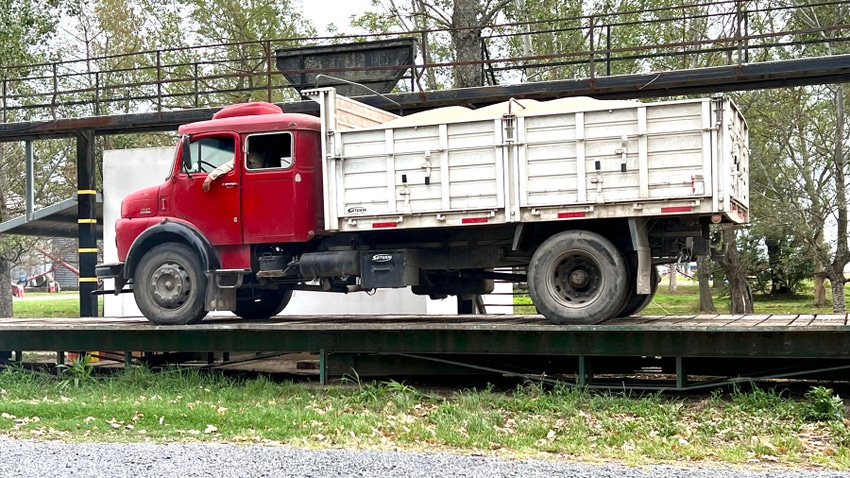
Argentina is making news as a global leader in soybean meal and oil production. Mark Legan, Coatesville, Ind., knew that was true before he visited the country in late January with a delegation of farmers and staff representing the Indiana Soybean Alliance. What he saw firsthand was that while an abundance of land gives Argentina an edge at growing large acreages of soybeans, the U.S. has its areas of competitive advantage as well.
One of the biggest differences is in infrastructure. From rural roads, railroads and rivers for transport to on-farm storage flexibility, better-developed infrastructure is a definite plus for the U.S. vs. Argentina.
Infrastructure differences
“Most of their crops are shipped from the farm by truck,” says Mike Koehne, ISA chairman from Greensburg, Ind. “They have special lanes for trucks near ports, and that’s a plus. But overall, the U.S. surpasses them with more inland waterways, better rail and other ways we transport grain. Their infrastructure is just nothing like ours.”
That isn’t an accident, and it takes constant lobbying to ensure it continues, Koehne adds. “When we visit at the federal level, we always stress the need for maintenance and improvement in our transportation system, including in our inland waterways, locks and dams, and on roadways. We need to see continuous improvement of bridges and railways, too.”
Koehne is on the executive committee of the Soy Transportation Coalition. Several soybean-producing states, including Indiana, support this coalition. It is instrumental in providing research and data on the state of infrastructure, including waterways, bridges and railways, to members of Congress and federal agencies.
“Good infrastructure is our competitive edge, no question,” Koehne says. “We can ship grain efficiently and competitively throughout our country. We could quickly tell that this is not the case in Argentina. “
You can’t drive very far in Indiana without seeing grain bins, often capable of holding from 50,000 to 500,000 bushels each. The farmers all agreed they saw very few signs of on-farm storage in Argentina during their trips through the countryside.
“It’s another part of infrastructure,” Koehne says. “They have very little on-farm storage. Instead, most of the crop is shipped directly to the ports at harvest. There are some crops stored in bags, like silage bags. But overall, on-farm storage isn’t the norm like it is in most of the U.S., especially in Indiana.”
While family farms appear to be alive and well, there is also more emphasis on custom planting and harvesting and custom farming in general in Argentina, the farmers note.
“It reminded me more of what happens out West in the U.S. in terms of custom harvesting,” says Denise Scarborough, La Crosse, Ind.
Still a player
While infrastructure in Argentina is different and has challenges, the country appears to achieve certain efficiencies.
“Their ag economy and rural infrastructure seem to be focused around moving soybeans globally and around transporting cattle and beef,” Legan says.
“They can bring ocean-going ships inland a good way to fill them for export,” he says. “Yes, they have some things to figure out. Right now, weather is certainly an issue. But looking down the road, they will be a player in soybeans and beef on the world stage.”
Read more about:
InfrastructureAbout the Author(s)
You May Also Like




